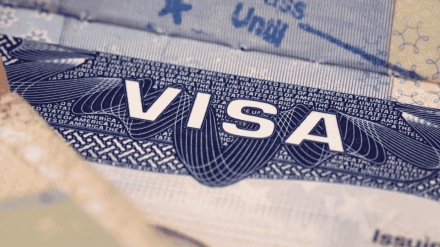US President Donald Trump sparked widespread alarm over the weekend after imposing a $100,000 fee on new H-1B visa applications. Indians are likely to bear the brunt of the abrupt decision — having accounted for 71% of people who secured the coveted work visa in 2024. US Representative Amerish ‘Ami’ Bera however believes that the change will ultimately “hurt American companies” and prove an unexpected boon for India.
Policy will ‘hurt US companies’
“I don’t agree with the policy because it’s actually going to hurt American companies. These are workers who are filling vital roles and positions. Hiking visa fees to $100,000 is unheard of for something like this. And just how they rolled out this policy creates a lot of uncertainty, even within the administration,” he told Indian Express.
Bera also predicted ‘benefits’ for Indian companies as the new policy took effect — noting that it could inspire a major relocation. He added that companies such as Microsoft could simply opt to expand their presence in India if they were unable to get the necessary workers in America.
‘Chaotic rollout’
The Democratic lawmaker also highlighted he seeming confusion within the White House after the decision was announced — with top members of the Trump cabinet walking back several details and issuing clarifications. He added that Congress was not informed ahead of time and indicated plans to seek clarity from the administration following the “chaotic rollout”.
The Indian-origin physician and politician currently serves as a member of the United States House of Representatives from California.
Strained India-US ties under Trump?
Ties between India and the US have come under severe strain in recent months as Trump imposed a 25% reciprocal tariff against New Delhi in early August. This was followed by an additional 25% tariff for continued purchase of Russian oil amid the Ukraine war — the only country to face such sanctions. New Delhi was also caught in the middle as Trump ended a sanctions waiver for Chabahar port in Iran and named the country as a major drug transit or producing nation last week.
“I’m not sure what’s driving this in the last 2-3 months. For almost 14 years, I’ve been in Congress, and the US-India trajectory has been moving in a decidedly positive direction, including during the first term of the Trump administration. There were a lot of real positive movements in the first term, and there are expectations in this term that the US-India relationship will continue moving in that direction. I hope there are honest closed-door conversations. I hope there is real movement,” he added.
